Vladimir Putin’s dilemma will resonate around the world as Russian tanks sweep over Ukraine, probably most dangerously in the Taiwan Strait. Beijing’s plan to annex Taiwan by force has become increasingly likely. That’s not because there’s a direct link between Putin’s invasion of Ukraine and Beijing’s threat to Taiwan, but because the Ukraine war is the most awful indicator yet of global geopolitics’ ominous direction: autocrats are striking back.
The lengthy American war against worldwide authoritarian threats appeared to have been won with the breakup of the Soviet Union in 1991. In Indonesia, Myanmar, Brazil, South Korea, the Philippines, Chile, and even Russia itself, dictators were on the run. Globalization was purportedly working its magic, spreading liberal political and economic ideas, prosperity, and, perhaps, the end of big-power rivalry. Sure, the Chinese Communist Party was firmly established in Beijing, but its members appeared to be willing participants in the global order, content to amass vast fortunes and immerse themselves in the trading networks and international institutions established by democratic powers.
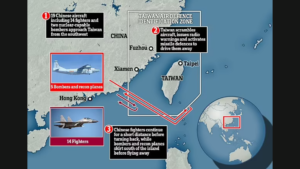
Putin’s onslaught on Ukraine has demonstrated how incorrect that line of reasoning was. In the 1990s, the United States and its allies obtained only a temporary respite from dictatorship. Take Viktor Orbán’s illiberal democracy in Hungary, Recep Tayyip Erdoan’s undermining of freedoms in Turkey, or Narendra Modi’s assault on India’s secular traditions: the American-led liberal democratic consensus has been weakening for years. In Myanmar, the generals have recaptured power; in Brazil, Jair Bolsonaro promotes anti-democratic rhetoric; and in the Philippines, Rodrigo Duterte has openly pursued a ruthless and lawless drug war. Nonetheless, Putin’s invasion ushers in a new era—one of totalitarian aggressiveness.
However, no country poses a greater challenge to the liberal world order than China. In many ways, Russia is a fading state, lacking the economic dynamism to maintain its political clout. Putin may be using the attack on Ukraine to obtain what he wants while he still has the chance. With China, a rising economic, diplomatic, and military force, the storey is different. President Xi Jinping’s nationalist fervour, commitment to the restoration of Chinese power, and more aggressive approach to territorial and maritime disputes, relations with the US and its allies, as well as the international system at large, have already become a destabilising force in Asia compared to his predecessors.
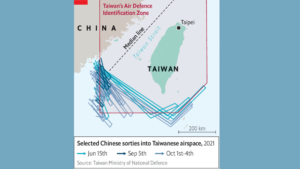
Taiwan is on the precipice of a dangerous situation. Similarly to Putin’s opposition to Ukrainian sovereignty, China’s Communist Party would never accept Taiwan’s independence, which Beijing regards as a key portion of China occupied by an illegitimate (and, by the way, democratic) government. A fundamental goal of Chinese foreign policy is to gain control over Taiwan, or “reunification,” as the party prefers to term it.
The prospects of a war over Taiwan are increasing under a world order where authoritarian regimes are assertive and democratic friends are on the defensive. Xi has already intimidated the government in Taipei by sending squadrons of jets to harass the island, while Beijing’s complete suppression of the prodemocracy movement in Hong Kong casts doubt on any hope that Taiwan would retain a semblance of its current freedom if it were to be absorbed into Communist Party–led China.
That doesn’t rule out a Chinese invasion on Taiwan. It’s impossible to know for sure what Xi is thinking about Taiwan in the context of Putin’s Ukraine conflict. Unlike Putin in Ukraine, Xi isn’t assembling an invasion force across the Taiwan Strait, which separates Taiwan from the Chinese mainland. Xi is also a lot of things that aren’t good, but foolhardy isn’t one of them. China’s rise, in his opinion, is unavoidable; time is on its favour. He doesn’t need to go down the path of conflict with Putin.
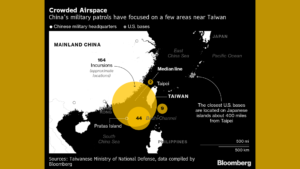
Putin’s military assault, however, is a foreshadowing of what is to come. Authoritarian powers believe the time has come to confront the United States and transform the globe. And who’s to say they’re wrong: it’s unclear whether the democratic allies have the motivation, resources, or solidarity to combat authoritarianism again.
The Ukraine crisis has demonstrated how the United States and its European allies strive for a single goal while falling short of achieving outcomes. The leaders of Europe want to chart their own course, but their much-touted “strategic autonomy” is increasingly resembling “strategic indecision,” in which short-term economic and political benefits trump long-term strategic needs.
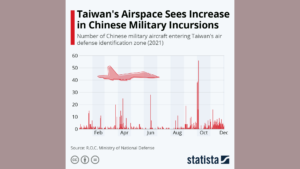
Meanwhile, furious political divides in Washington cast considerable doubt on the United States’ ability to maintain its resolution. The American populace is tired of fighting wars across the world.
If current trends continue, the day when China invades Taiwan will be closer than ever. As much as their own rise, Chinese authorities are starting to see America’s decline as inevitable; the Ukraine conflict may appear to add even more proof to their argument. They may one day calculate (or, worse, miscalculate) that the United States and its allies will not fight for each other, their beliefs, or their world system.
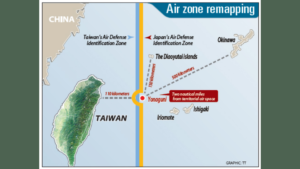
Nothing, however, is unavoidable. The inability to prevent Putin’s invasion, according to Washington’s opponents, is already a show of American weakness. The United States, on the other hand, has never been and will never be omnipotent. The truth is that the game in Ukraine is far from over. The world, particularly Xi Jinping, will now be watching to see how much pain and cost the United States and its allies can and will inflict on Russia. The United States has demonstrated its might not only with aircraft carriers, but also with its technology, currency, and ability to coordinate collective action. Putin’s war on Ukraine puts all of these tools to the test.
China and Russia will undoubtedly maintain their pressure. They’ll create fresh crises to put pressure on the US and its allies. It’s possible that the alliances can be shattered, and American dominance diminished.
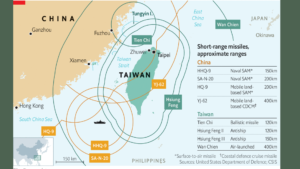
With its intertwined economic and security concerns, the modern world is far too complicated to be reduced to a simple struggle between democracy and authoritarianism. However, it can be divided into two groups: those who benefit strategically from maintaining the current world order and those who benefit strategically from subverting it. The invasion of Ukraine could be the first step in a strategy to destabilise the country. China could be involved in the next one.
Also read:





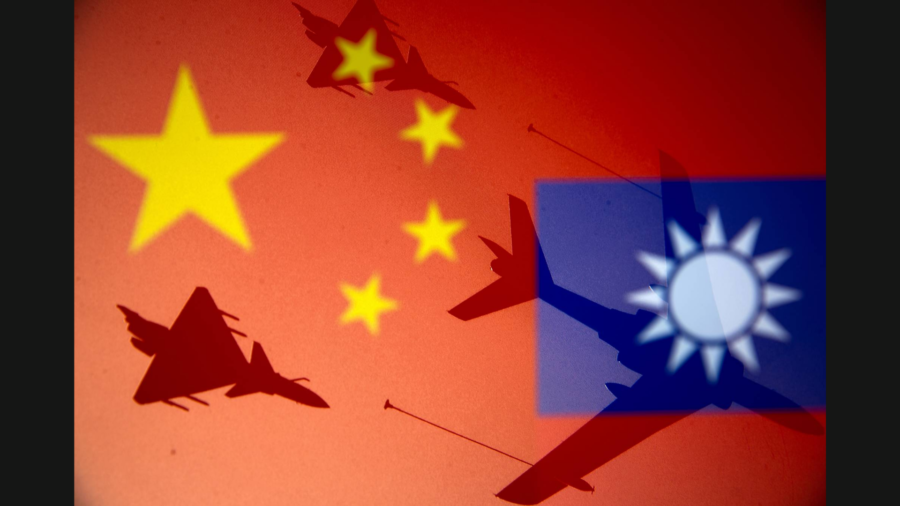

You Americans are easily incensed, but you are provocateurs in self-righteousness. They destroyed Syria, bombed the civilian population of many countries.